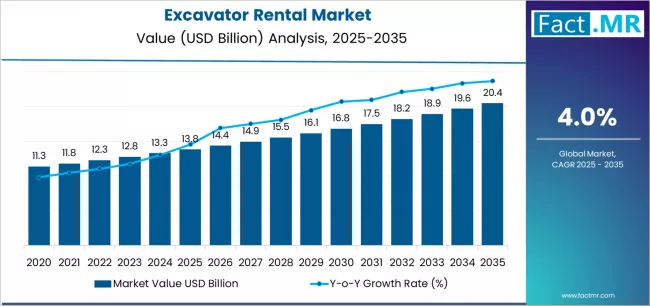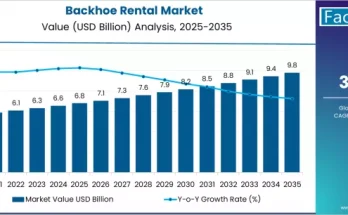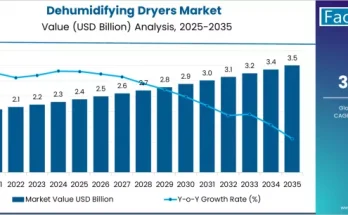As the construction and infrastructure sectors continue to expand globally, the demand for efficient, high-performance machinery has reached new heights. Among these, excavators have become indispensable for earthmoving, site preparation, and material handling tasks. However, the high upfront investment and maintenance costs of heavy machinery have pushed many contractors toward more flexible, scalable solutions — giving rise to the excavator rental market.
The growing preference for renting over purchasing heavy construction equipment reflects a broader industry trend toward cost optimization, operational agility, and sustainability. Excavator rental services now serve as a crucial link between technology adoption and financial efficiency, empowering businesses of all sizes to take on diverse projects with confidence.
Market Overview
The excavator rental market forms a vital part of the global equipment leasing ecosystem. Excavators, designed for tasks such as digging, grading, and demolition, are widely used across construction, mining, agriculture, and waste management industries. Renting provides project-based flexibility and ensures contractors can access the latest models equipped with advanced features — all without the long-term financial burden of ownership.
As construction projects become more complex and timelines tighter, the need for reliable and well-maintained machinery is more critical than ever. Rental providers meet this demand by offering a range of excavator types, including mini, crawler, wheeled, and long-reach excavators, suited to different terrains and operational requirements.
Furthermore, the introduction of telematics and IoT-integrated machinery has enhanced rental efficiency, enabling real-time tracking, predictive maintenance, and optimized fuel consumption — benefits that appeal to both small-scale contractors and large enterprises.
Regional Insights
North America continues to be a major hub for excavator rentals, driven by large-scale construction activities, infrastructure renovation projects, and an increasing focus on project-based equipment use. Well-established rental networks and technological integration have made the region a model for flexible construction operations.
In Europe, sustainability initiatives and strict emission regulations are reshaping rental fleets. Companies are adopting hybrid and electric excavators to comply with environmental standards while maintaining productivity. The presence of leading rental service providers also ensures high equipment availability and consistent service quality.
The Asia-Pacific region stands out as one of the fastest-growing markets, propelled by rapid urbanization, industrial expansion, and government investments in road, rail, and housing infrastructure. The region’s thriving small and medium construction sector often relies on rental solutions to remain competitive in price-sensitive markets.
Meanwhile, the Middle East, Africa, and Latin America are witnessing growing adoption of excavator rentals due to ongoing infrastructure development, energy projects, and mining operations. The increasing presence of global rental companies and local service providers is making these markets more organized and accessible.
Key Trends & Forecast
- Rising Popularity of Mini and Compact Excavators
Compact excavators are gaining traction in urban construction and landscaping projects due to their versatility, easy transport, and reduced operating costs. Their growing demand is reshaping rental portfolios worldwide. - Integration of Smart Technologies
IoT-based tracking systems, GPS-enabled monitoring, and telematics are becoming standard in modern rental fleets. These technologies help contractors improve efficiency, monitor fuel consumption, and predict maintenance schedules. - Sustainability and Green Equipment Transition
With increasing environmental awareness, rental companies are investing in energy-efficient and electric-powered excavators. This trend aligns with global goals for carbon reduction and sustainable construction practices. - Digitalization of Rental Services
Online rental platforms and mobile apps have simplified the equipment booking process. Digital documentation, transparent pricing, and remote fleet management are transforming customer experiences in the rental industry. - Collaborations and Strategic Partnerships
Equipment manufacturers and rental service providers are forming partnerships to expand their market reach and enhance service quality. These collaborations help deliver modern, reliable machinery tailored to diverse project needs.
Applications & End-Use Outlook
The versatility of excavators makes them essential across multiple sectors:
- Construction: Excavators are used for digging foundations, trenching, and grading. Contractors rent them to meet project-specific needs without long-term investment.
- Mining and Quarrying: Heavy-duty excavators are indispensable for material extraction and site clearance. Rentals allow mining operators to scale operations according to project cycles.
- Agriculture and Forestry: In agriculture, excavators assist in land preparation, irrigation channel creation, and tree planting.
- Waste Management and Recycling: Excavators are used to handle bulk waste and scrap materials, contributing to efficient recycling and disposal operations.
- Infrastructure Development: From road building to pipeline installation, excavators play a vital role in shaping modern urban landscapes.
By catering to these diverse applications, rental services empower industries to balance operational efficiency with financial prudence.
Competitive Landscape
The excavator rental market features a mix of international and regional players competing on service reliability, fleet size, and technological innovation. Major companies are focusing on expanding their rental fleets, offering flexible pricing models, and providing maintenance support to enhance customer satisfaction.
Digital transformation has emerged as a key differentiator among top players. By leveraging data analytics and automation, rental companies can monitor equipment performance, forecast demand trends, and ensure timely maintenance. Strategic acquisitions, partnerships with OEMs (original equipment manufacturers), and investments in eco-friendly machinery are shaping the competitive dynamics of the market.
Furthermore, customer-oriented approaches — including quick delivery, customized rental plans, and after-sales assistance — are strengthening brand loyalty and improving service accessibility across regions.
Sustainability and Future Outlook
Sustainability has become a defining theme in the construction equipment industry. Rental providers are transitioning toward cleaner technologies by introducing electric and hybrid excavators that reduce emissions and noise pollution. These machines not only help meet environmental standards but also support quieter operations in urban settings.
In the near future, the integration of autonomous and AI-assisted excavators could redefine safety and efficiency standards across construction sites. Combined with predictive analytics, these advancements will enhance fleet utilization and extend equipment lifespan.
As industries increasingly adopt circular economy principles, equipment rentals are set to play a larger role in promoting resource efficiency and reducing waste — ensuring that excavator rentals remain a cornerstone of sustainable construction management.
Conclusion
The excavator rental market is transforming how businesses approach heavy machinery procurement. By offering financial flexibility, technological advancement, and reduced maintenance responsibility, rental services are empowering contractors to manage diverse and demanding projects effectively.
As the global focus shifts toward digitalization and sustainability, the market’s evolution will continue to align with modern construction priorities — combining economic efficiency with environmental responsibility.
Organizations that adopt data-driven rental strategies, leverage smart technologies, and prioritize eco-conscious equipment choices will lead the next wave of progress in the excavator rental industry — digging deeper not just into the earth, but into a more innovative and sustainable future.
Browse Full Report – https://www.factmr.com/report/excavator-rental-market



